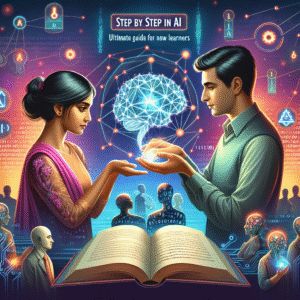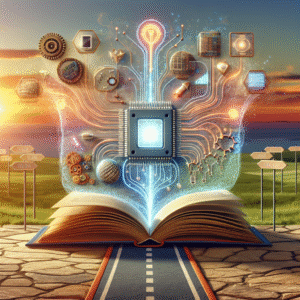In the past few decades, technology has rapidly revolutionized almost every aspect of our daily lives, and at the forefront of this transformation is machine learning (ML). As a subset of artificial intelligence (AI), machine learning involves the development of algorithms that allow computers to learn from and make decisions based on data. Its applications are vast, spanning numerous industries and offering innovative solutions to complex problems. This article explores the profound impact machine learning has on our world today and how it is shaping the future.
Understanding Machine Learning
At its core, machine learning is about creating systems that improve over time with exposure to more data. Unlike traditional programming, where a programmer explicitly codes all possible scenarios, machine learning systems are designed to discern patterns and make data-driven predictions or decisions. This is achieved through various methods, such as supervised learning (where the system learns from labeled data), unsupervised learning (where the system identifies patterns in unlabeled data), and reinforcement learning (where the system learns through trial and error).
Transforming Industries
Healthcare
Machine learning is revolutionizing healthcare by enhancing diagnostic accuracy and personalizing treatment plans. Algorithms can analyze vast amounts of medical data to identify patterns that may not be apparent to human clinicians. For instance, ML models are being used to detect early signs of diseases such as cancer from medical imaging with remarkable accuracy. Additionally, personalized medicine is becoming a reality as machine learning helps tailor treatments based on an individual’s genetic makeup and health records.
Finance
In the financial sector, machine learning has become a critical tool for fraud detection, risk assessment, and algorithmic trading. By analyzing transaction patterns, algorithms can detect fraudulent activities in real-time, saving institutions billions of dollars. Moreover, ML models can predict market trends by analyzing historical data, thus informing trading strategies and investment decisions.
Retail
Retailers harness machine learning to enhance customer experiences and optimize operations. Through recommendation engines, businesses can offer personalized product suggestions, increasing sales and customer satisfaction. Furthermore, ML algorithms assist in inventory management by predicting demand, thus reducing excess stock and minimizing waste.
Transportation
The transportation industry is on the brink of a major transformation with the advent of self-driving cars, a feat made possible by machine learning. Autonomous vehicles rely on complex algorithms to interpret sensor data, navigate roads, and make split-second decisions. Beyond self-driving cars, machine learning is used in optimizing supply chain logistics and improving public transit systems through predictive maintenance and efficient route planning.
Enhancing Everyday Life
Personal Assistants
Virtual assistants like Siri, Alexa, and Google Assistant have become integral to our daily routines. These AI-driven tools leverage machine learning to understand voice commands, answer questions, and perform tasks, making technology more accessible and convenient.
Smart Homes
Machine learning is at the heart of smart home technology. Devices learn from user behavior to automate tasks such as adjusting lighting, regulating temperature, and securing homes. As a result, homes become more efficient, comfortable, and safe.
Entertainment
Streaming platforms like Netflix and Spotify utilize machine learning to curate personalized content recommendations. By analyzing viewing or listening habits, these platforms deliver content that aligns with user preferences, enhancing engagement and satisfaction.
Future Prospects and Challenges
Advancements on the Horizon
The future of machine learning holds promise for further groundbreaking advancements. As computational power increases and data availability expands, ML models will become even more capable and efficient. Areas such as drug discovery, climate modeling, and natural language processing are poised for major breakthroughs. With continuous improvements, machine learning has the potential to solve some of the most pressing challenges facing humanity today.
Ethical Considerations and Challenges
Despite its potential, machine learning comes with challenges and ethical considerations. Concerns about data privacy and security are paramount, as ML systems often require vast amounts of personal data to function effectively. Additionally, biased data can lead to discriminatory outcomes, highlighting the importance of developing fair and transparent algorithms.
There is also the issue of job displacement. As automation becomes more prevalent, some fear that certain jobs could become obsolete. However, it’s essential to view ML as a tool that can augment human capabilities rather than replace them entirely. By focusing on reskilling and upskilling, the workforce can adapt to the evolving landscape.
Conclusion
Machine learning is not just a technological trend; it is a transformative force reshaping every facet of our world. From healthcare and finance to transportation and daily conveniences, its impact is profound and far-reaching. As we continue to innovate and push the boundaries of what is possible, machine learning will undoubtedly play a central role in shaping a smarter, more efficient, and more inclusive future. Embracing its potential while addressing its challenges is crucial to unlocking the full benefits of this revolutionary technology.




